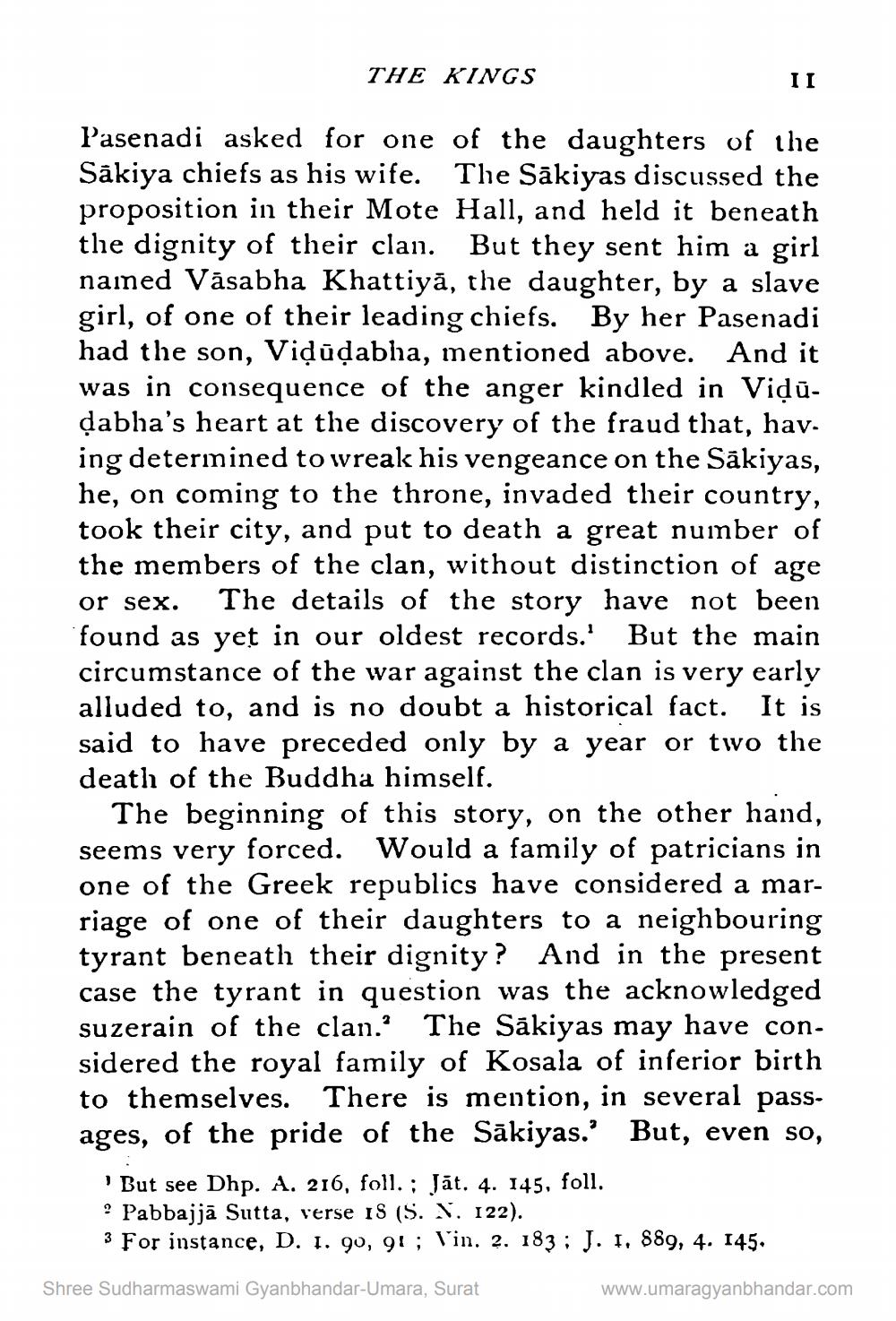________________
THE KINGS
NI
Pasenadi asked for one of the daughters of the Sākiya chiefs as his wife. The Sākiyas discussed the proposition in their Mote Hall, and held it beneath the dignity of their clan. But they sent him a girl nained Vāsabha Khattiyā, the daughter, by a slave girl, of one of their leading chiefs. By her Pasenadi had the son, Vidūdabha, mentioned above. And it was in consequence of the anger kindled in Vidū. dabha's heart at the discovery of the fraud that, hav. ing determined to wreak his vengeance on the Sākiyas, he, on coming to the throne, invaded their country, took their city, and put to death a great number of the members of the clan, without distinction of age or sex. The details of the story have not been found as yet in our oldest records.' But the main circumstance of the war against the clan is very early alluded to, and is no doubt a historical fact. It is said to have preceded only by a year or two the death of the Buddha himself.
The beginning of this story, on the other hand, seems very forced. Would a family of patricians in one of the Greek republics have considered a marriage of one of their daughters to a neighbouring tyrant beneath their dignity? And in the present case the tyrant in question was the acknowledged suzerain of the clan. The Sākiyas may have considered the royal family of Kosala of inferior birth to themselves. There is mention, in several passages, of the pride of the Sākiyas. But, even so,
But see Dhp. A. 216, foll. ; Jāt. 4. 145, foll. Pabbajjā Sutta, verse is (S. N. 122). 3 For instance, D. 1. 90, 91; Vin. 2. 183: J. 1, $89, 4. 145.
Shree Sudharmaswami Gyanbhandar-Umara, Surat
www.umaragyanbhandar.com




